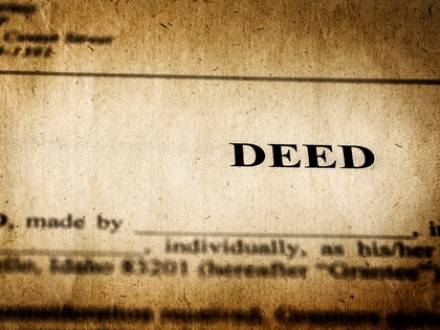Why Texas Says No to Property Bonds (Most of the Time)
 If a loved one has recently been arrested in the state of Texas and bail has been set, you are likely scrambling to ensure he or she spends the least amount of time possible in jail. This means finding a way to post the bail. Since few people can afford to post the entire cash bail amount, most will use a Texas bail bondsman (a surety bond). In many states, property bonds are also allowed.
If a loved one has recently been arrested in the state of Texas and bail has been set, you are likely scrambling to ensure he or she spends the least amount of time possible in jail. This means finding a way to post the bail. Since few people can afford to post the entire cash bail amount, most will use a Texas bail bondsman (a surety bond). In many states, property bonds are also allowed.
This means that real estate or other assets can be used as collateral in place of cash. In Texas, the option for a property bond, although legal, is rarely a consideration. If you are wondering why property bonds are not common in the state, the answer lies in Texas law, local court practices, and the state’s concerns regarding enforcement in the Texas bail system.
If you are considering putting up a property bond, it is imperative that you have a thorough understanding of how property bonds work and the reasons why it might not be a good idea, even if you can do it. Working with a Denton County, TX bail bondsman from Doc's Bail Bonds will ensure your questions are answered in a clear, understandable manner. We are one of the oldest and largest bail bond companies in North Texas, and we are committed to our clients and their needs.
What Is a Property Bond and What Are the Legal Requirements in Texas?
The Texas Code of Criminal Procedure, Articles 17.02 and 17.03, provides an overview of bond requirements. A property bond uses real estate as collateral to guarantee a defendant’s court appearances. A lien is placed on the property until the case is resolved. In the state of Texas, a property bond requires sufficient non-exempt real estate with adequate equity to cover the entire bail amount. This means that the value of the property, minus any outstanding loans against it, must be at least equal to the amount of the bond.
The real estate must not be legally exempt from seizure, and all legal ownership documentation must be provided to the bondsman. A written, straight promissory note must be signed by every person with a legal interest in the property, and the court must be provided a legal description of the property and a current statement from the Texas taxing authority.
Why Are Property Bonds Rare in Practice in Texas?
There are several reasons why property bonds are rarely used in the state of Texas. Perhaps the primary reason is that the paperwork is time-consuming, including a title search, appraisal, and court approval. Other reasons include:
- Judges tend to prefer cash or surety bonds because of their simplicity and reliability.
- Many counties are not set up to process or monitor property bonds.
Why Surety Bonds Are the Preferred Method of Bail in Texas
Surety bonds, which utilize a bail bondsman, are the most common type of bail bond used in Texas, particularly for defendants facing felony charges. The non-refundable fee, typically 10 to 20 percent of the total bail amount, is paid to a bail bondsman, who in turn guarantees the full bail amount to the court. The process is straightforward, simple, and much quicker than a property bond. Cash bonds require paying the full amount to the court, but it is rarely a feasible option for those without significant cash on hand.
How the Texas Bail Reform Movement Intersects with Property Bonds
The passage of the Damon Allen Act (SB6) in 2021 has tightened regulations for pretrial release. This Act has also limited the use of property bonds for specific types of crimes. The Act restricts release for violent crimes, mandating cash bail for those accused of certain violent offenses, and decreeing that property bonds are no longer an option for those charged with violent crimes.
Contact a Dallas, TX Bail Bondsman
When you choose Doc's Bail Bonds, you have chosen a strong company with a stellar reputation. Prior experience managing a professional baseball team has allowed Doc to build a strong team for his bail bonds business. We are knowledgeable, professional, and well-respected in the industry. Call 214-747-4110 to speak to a knowledgeable Texas bail bondsman.










